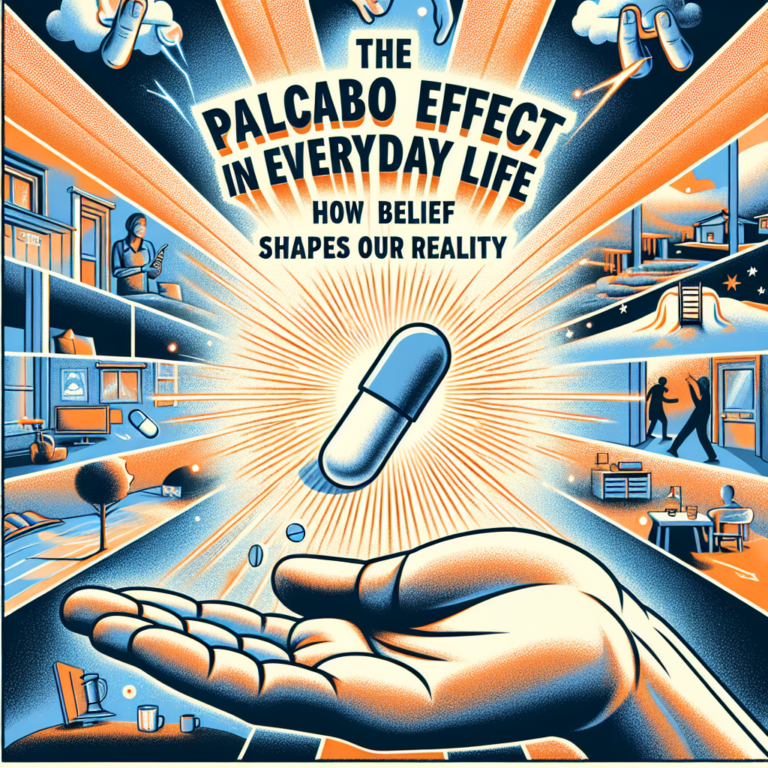
Introduction
Imagine a world where stress negatively impacts your physical health, leading to challenges like hypertension and chronic pain. Or consider the flipside: an uplifting thought or a moment of joy can lift your spirits, accelerating your recovery from illness. This intricate interplay between our mental and physical states serves as the crux of our discussion today: Connecting the Dots: Why Understanding the Mind-Body Link is Essential for Health.
In recent years, science has made great strides in understanding how our thoughts, emotions, and attitudes impact our physiological well-being. The mind-body connection isn’t just a philosophical concept; it’s a crucial factor in achieving holistic health. In this article, we will explore the dimensions of this connection, supported by relevant case studies, engaging data, and actionable insights.
The Science of the Mind-Body Connection
Understanding the Basics
At its core, the mind-body link refers to the relationship between our mental processes and physical health outcomes. This is not merely speculation; extensive research has demonstrated that psychological factors can influence physical states, affecting everything from immune function to chronic disease management.
Case Study: Stress and Cardiovascular Health
A 2017 study published in the Journal of the American Heart Association highlighted a significant association between stress and cardiovascular disease. The research revealed that individuals with high-stress levels had a higher incidence of heart attacks and hypertension. This finding underlines the essential premise that connecting the dots between mental stress and physical health can save lives and lead to preventive measures.
Key Mechanisms at Play
To further elucidate this connection, let’s delve into key physiological mechanisms involved:
Neurotransmitters: Chemicals in the brain, such as serotonin and dopamine, can influence mood and, therefore, physical health. A deficiency in these neurotransmitters could contribute to conditions like anxiety and depression, which, in turn, can worsen physical ailments.
Hormonal Responses: The body releases hormones like cortisol during stress. Chronic high levels can lead to various health issues, including weight gain, immune suppression, and even digestive problems.
- Inflammation: Psychological states can trigger inflammatory responses in the body. Chronic inflammation has been linked to numerous diseases, including arthritis, diabetes, and even cancer.
Table 1: Key Mechanisms of the Mind-Body Connection
| Mechanism | Impact on Health |
|---|---|
| Neurotransmitters | Mood regulation, mental health disorders |
| Hormonal Responses | Stress effects, chronic disease risk |
| Inflammation | Links to various chronic diseases |
How Emotions Affect Physical Health
The Role of Emotions
Emotional health significantly influences physical well-being. Emotions can affect pain perception and can either exacerbate or alleviate chronic pain conditions.
Case Study: Depression and Chronic Pain
Research published in the Archives of Internal Medicine found that individuals suffering from chronic pain often also experience depression. The study discovered that patients who engaged in cognitive-behavioral therapy (CBT) not only reported reduced pain but also improved emotional well-being. This study exemplifies why understanding the mind-body link is essential for health: addressing emotional factors can lead to tangible improvements in physical health outcomes.
Coping Mechanisms
While the emotional-physical relationship can seem daunting, there are effective coping strategies individuals can employ:
Mindfulness and Meditation: Studies indicate that regular mindfulness practices can lower stress and anxiety levels and improve mood.
Exercise: Physical activity releases endorphins, enriching mood and serving as a natural antidote to feelings of distress.
- Positive Relationships: Social support has shown to buffer negative health outcomes, enhancing overall well-being.
Chart 1: Benefits of Positive Coping Mechanisms
| Coping Mechanism | Health Benefit |
|---|---|
| Mindfulness | Reduces stress levels |
| Exercise | Natural mood enhancer |
| Positive Relationships | Shields against health decline |
Behavioral Interventions that Work
Integrative Approaches to Health
Healthcare is increasingly recognizing the importance of integrative approaches that address both mental and physical aspects. By connecting the dots between lifestyle choices and health outcomes, we can unlock new strategies for well-being.
Case Study: Mind-Body Medicine
The work of Dr. Herbert Benson, founder of the Mind/Body Medical Institute, emphasizes this integration. His research demonstrates that techniques such as relaxation response and biofeedback can significantly reduce symptoms in patients with chronic illnesses like hypertension, stress disorders, and gastrointestinal issues. This validates why understanding the mind-body link is not just optional; it’s essential for comprehensive healthcare.
The Role of Nutrition
Nutrition also plays a vital role in the mind-body relationship. Certain foods can help regulate neurotransmitters and hormones, impacting mood and physical health. For example, Omega-3 fatty acids, found in fish, have been linked to improved mental health.
Real-World Applications of the Mind-Body Link
The Corporate World
Organizations are beginning to understand the value of fostering healthy mental environments. Employee well-being programs that emphasize the mind-body connection have shown to improve productivity and reduce healthcare costs.
Case Study: Google’s Employee Wellness Program
Google implemented mindfulness programs for employees, resulting in increased productivity and employee satisfaction. These initiatives serve as a testament to the correlation between mental health and great organizational outcomes, tying back to Connecting the Dots: Why Understanding the Mind-Body Link is Essential for Health in our workplaces.
Conclusion
Understanding the mind-body connection is crucial for attaining optimal health and wellness. From the individual level to the societal level, recognizing this relationship enables us to frame our approach to health in a more holistic manner. Implementing strategies that nurture both mental and physical health creates a synergistic effect that fosters overall well-being.
As we move forward, remember that reconnecting and nurturing this essential link is not just beneficial but transformative. Whether through mindfulness, physical activity, or dietary choices, every effort counts in the comprehensive journey toward health.
FAQs
1. What is the mind-body connection?
The mind-body connection refers to the relationship between our mental processes and our physical health. It encompasses how emotions, thoughts, and behaviors influence bodily functions, affecting overall health.
2. How can stress affect physical health?
Chronic stress can lead to a range of physical health problems, including cardiovascular issues, digestive problems, and weakened immune function.
3. What are some practical ways to enhance the mind-body connection?
Some effective practices include engaging in mindfulness and meditation, regular exercise, nurturing positive relationships, and maintaining proper nutrition.
4. Can mental health conditions influence physical ailments?
Yes, conditions such as anxiety and depression can exacerbate physical health problems, making it essential to address both dimensions of health.
5. How can organizations improve employee wellness through the mind-body connection?
Workplaces can foster mental health through wellness programs, flexibility, adequate social support, and stress management initiatives to improve overall employee well-being and productivity.
In the quest for optimal health, Connecting the Dots: Why Understanding the Mind-Body Link is Essential for Health is a mantra we should all embrace, both personally and collectively. By thoughtfully integrating mind and body practices into our health strategies, we can pave the way for a healthier future.













